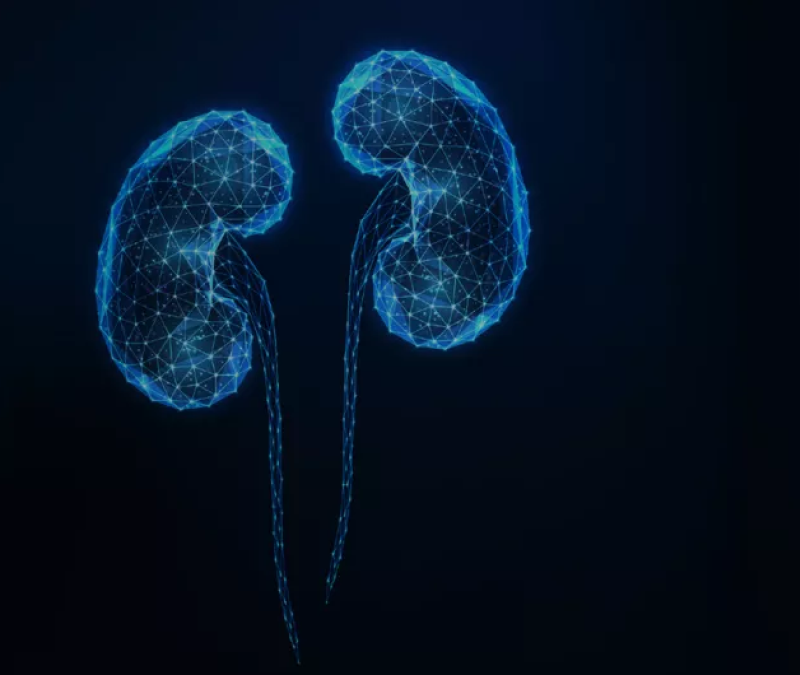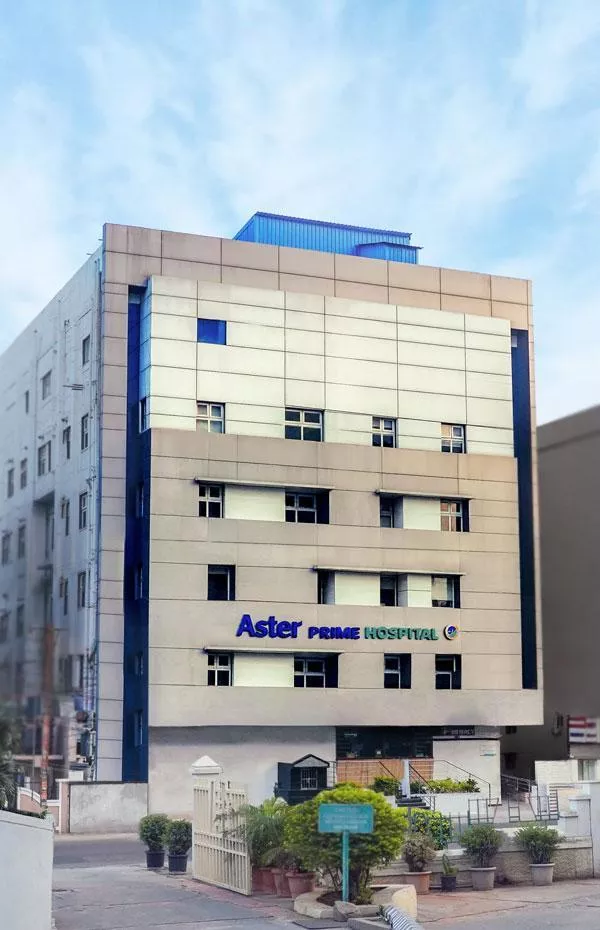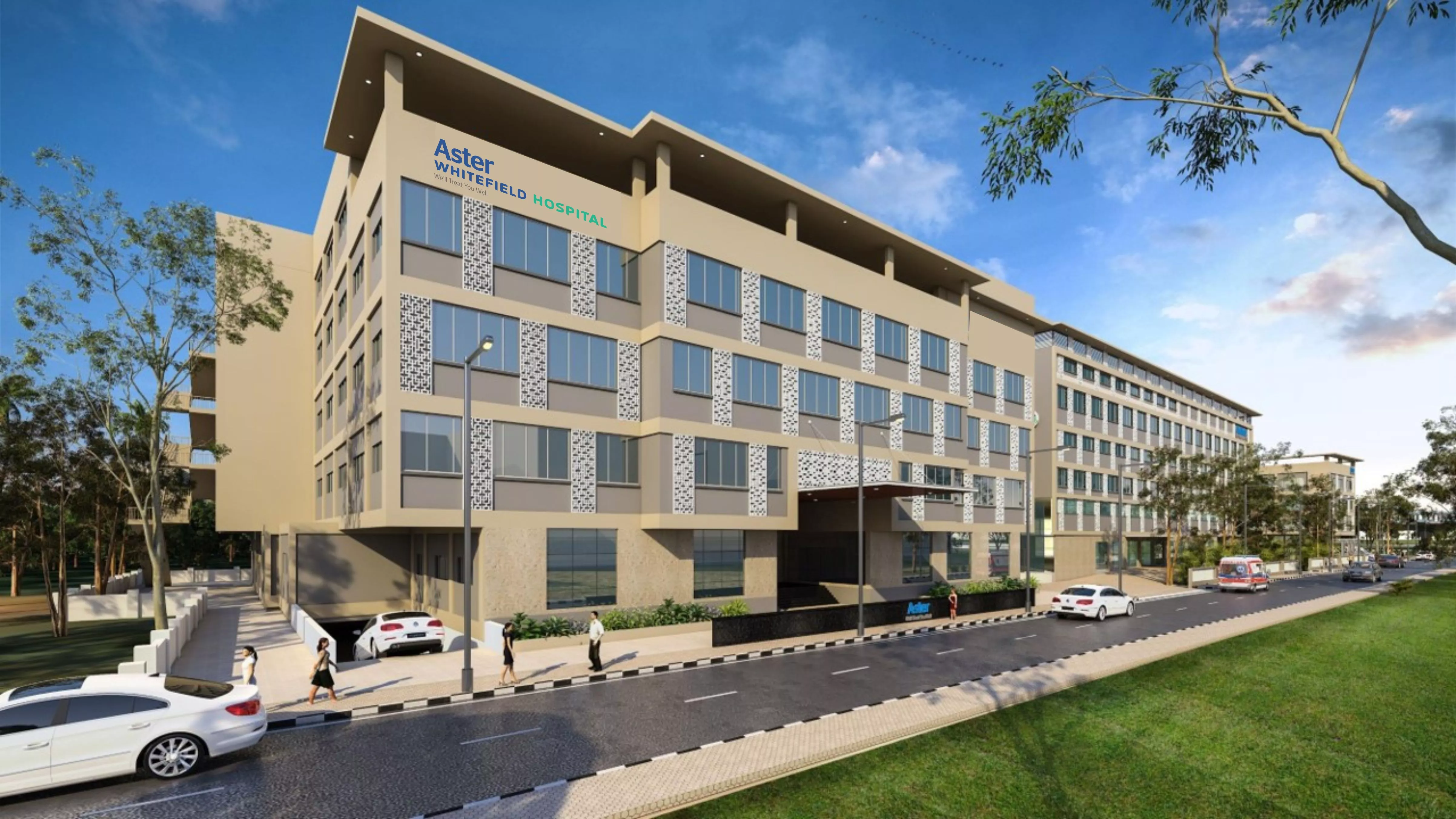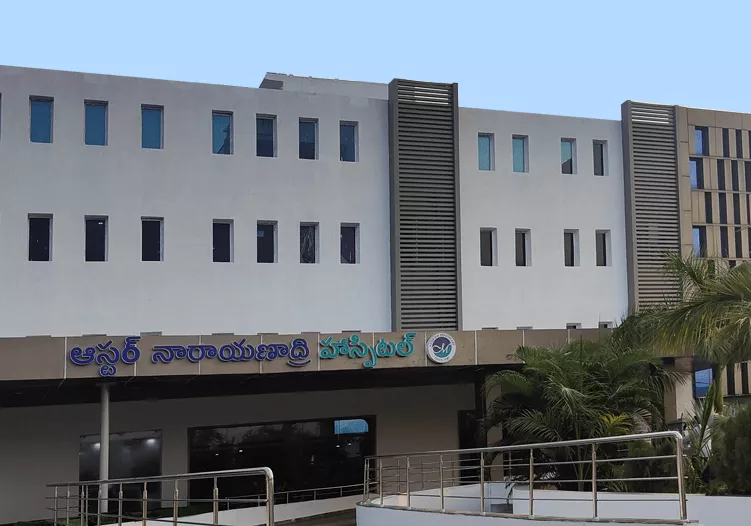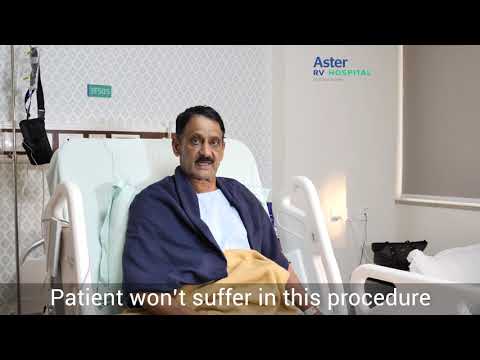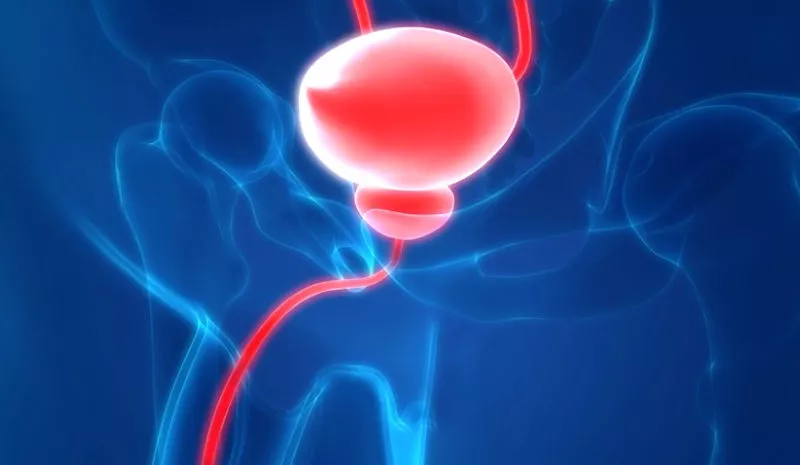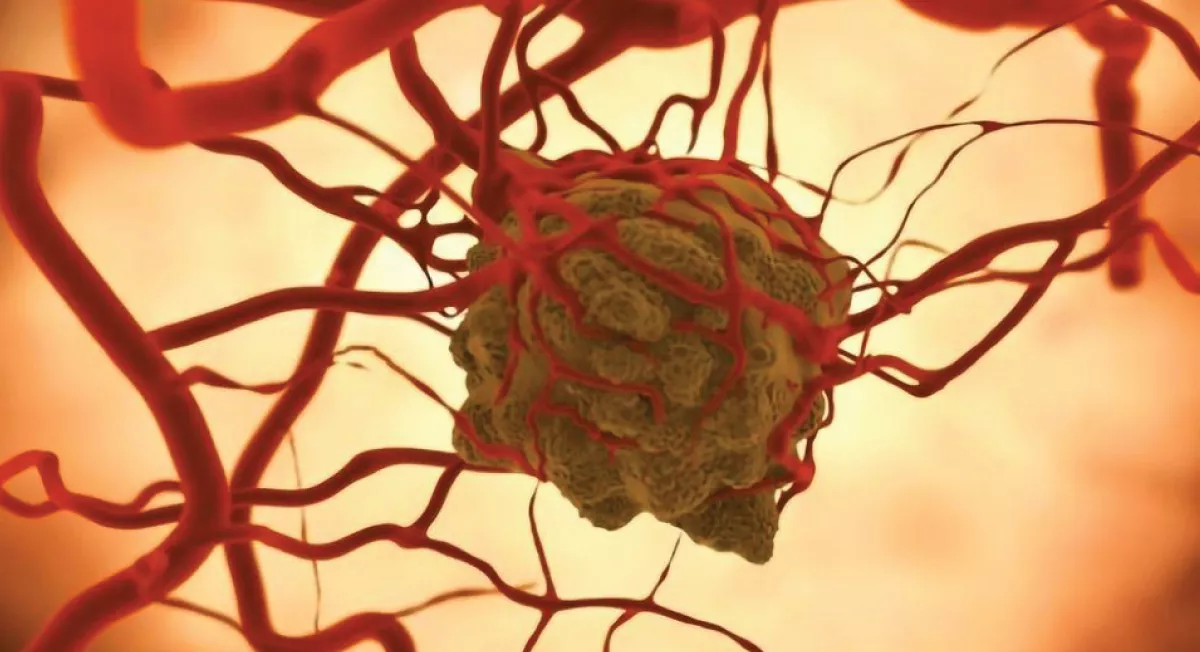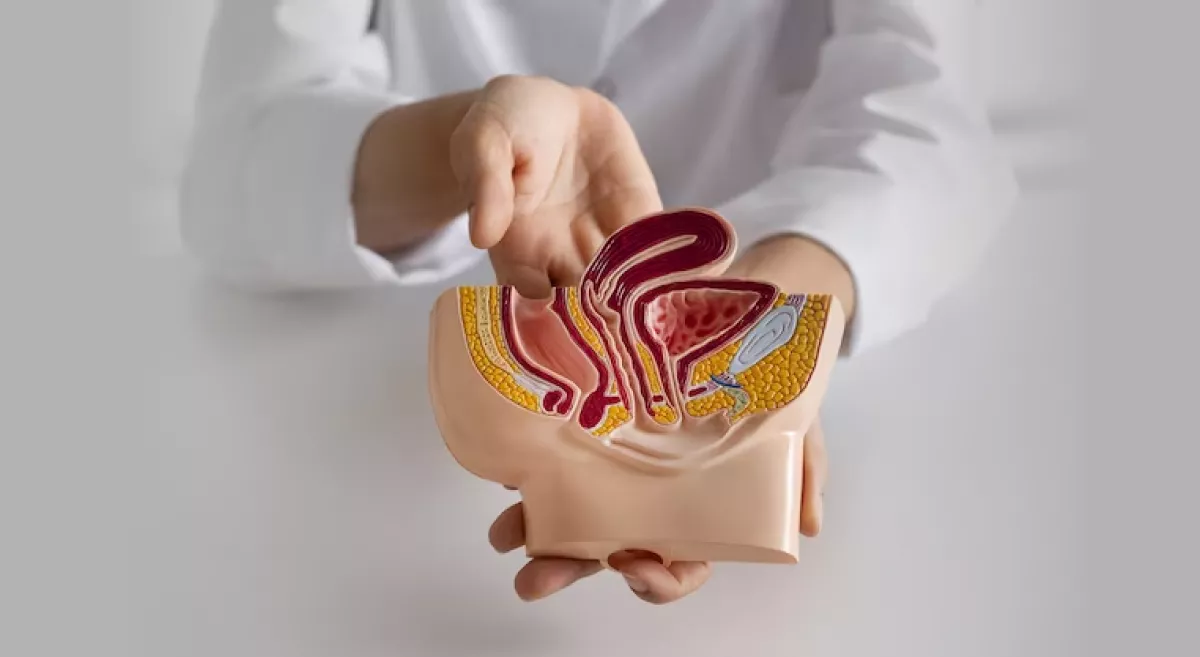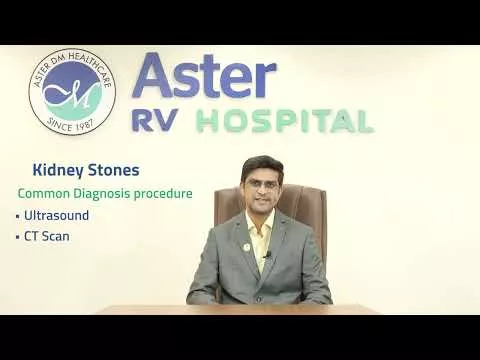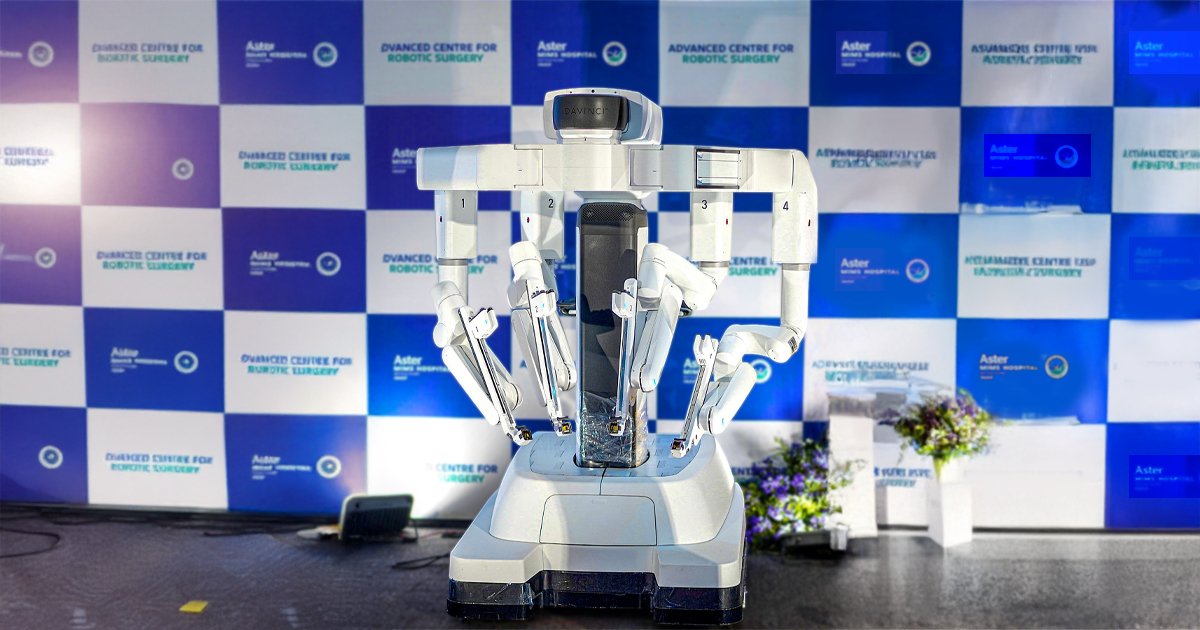Uro-care by the finest.
Aster’s Urology Centre offers a comprehensive range of services for the evaluation, diagnosis, and treatment of acute and chronic adult and paediatric urological conditions including renal failure.
Our Urologists have a rich experience of performing minimally invasive procedures, endourology, laser surgery, laparoscopic surgeries, laser endourology for prostate and kidney stones, uro-oncology surgeries for cancer of kidney, bladder, prostate, and testis, male infertility and sexual related problems, paediatric urology, female urology, reconstructive urology, and renal transplantation.
Combining medical expertise, advanced technology, state-of-the-art infrastructure, and surgical facilities makes Aster one of the most coveted hospitals for urology treatment in India & abroad.
Our hospitals are equipped with advanced robotic surgical equipment for precision surgeries.
At Aster Hospitals, we have pioneered some of the most innovative urology procedures.
Our Medcity unit is the third centre in the world to perform a robotic transvaginal renal transplant surgery and the first in India to perform a robotic kidney tumour removal.
Our Specialities
Through our 25+ specialities, we provide in-depth expertise in the spectrum of advance medical and surgical interventions. Our specialties are integrated to provide a seamless experience.
Advanced Technology & Facilities
Well equipped with the latest medical equipment, modern technology & infrastructure, Aster Hospital is one of the best hospitals in India.
Cystoscopy
Ureteroscopy
Focussed ultrasonography
TRUS
CT scan
Cystoscopy is an important procedure used by our urology team to diagnose and treat a variety of urinary tract problems. It involves passing a thin, lighted instrument into the urethra and bladder and is generally performed in an outpatient setting. Cystoscopy is a medical procedure used in urology to look inside the urinary tract. The cystoscope can magnify the bladder and urethral lining, allowing the doctor to detect any abnormalities.
In this procedure, the surgeon of our urology team makes insertion of a thin, flexible tube with a camera on the end (ureteroscope) through the urethra and into the ureter to examine the lining of the ureter and kidney. The ureteroscope allows the physician to view the ureter and kidney and identify any abnormalities, such as stones, tumors, or other blockages. The ureteroscope can also be used to take biopsies of the kidney and remove stones or other obstructions. This procedure is minimally invasive and allows for a detailed examination of the ureter and kidney without the need for open surgery.
It is a minimally invasive procedure carried out by our urologists with an endoscopic camera, which is inserted through the urethra and into the kidney. The camera is connected to a monitor, allowing the doctor to view images of the inside of the kidney. During the procedure, the doctor can obtain biopsy samples, remove stones, or perform laser treatments.
It is a medical procedure, in which our doctors use an endoscope to examine and treat conditions affecting the upper urinary tract, which includes the kidneys and ureters. During the procedure, a thin, flexible tube with a camera attached to its end is inserted through a small incision in the skin and guided through the urinary tract to the affected area.
This is a non-invasive medical procedure used by trained and skilled surgeons of our urology department to break up kidney stones, bladder stones, or ureteral stones into small pieces that can be easily passed out of the body through urine. The procedure uses shock waves to break up the stones, eliminating the need for surgical incisions.
TRUS stands for Transrectal Ultrasound, and it is a type of imaging technique that is commonly used by our urologists to visualize the prostate gland. A TRUS-guided biopsy is a procedure that involves taking small samples of tissue from the prostate gland using a biopsy needle under the guidance of transrectal ultrasound.
MR-TRUS (Magnetic Resonance-Transrectal Ultrasound) guided biopsy of the prostate is a type of diagnostic procedure used by our doctors to detect and diagnose prostate cancer. It combines the use of magnetic resonance imaging (MRI) with transrectal ultrasound (TRUS) to guide the biopsy needle precisely to the suspicious areas of the prostate gland.
FAQs
Want to find out more about the treatment? The answer to your questions can be found below.
What is the field of Urology?
Urology is a medical specialty that focuses on diagnosing and treating disorders associated with the urinary tract in both genders and the male reproductive system.
What diagnostic procedures does the Urology Department employ?
The department utilizes a range of diagnostic procedures including urinalysis, ultrasound scans, cystoscopy, urodynamic testing, MRI scans, CT scans, prostate-specific antigen (PSA) tests, and biopsies.
Does the Urology Department of Aster Whitefield Hospital offer robotic-assisted surgery?
Yes, the Urology department of Aster Whitefield Hospital provides robotic-assisted surgery for various urological procedures, offering patients less invasive options, reduced pain, and quicker recovery times.
What can I expect during my urology consultation?
During a consultation, the doctor will review your medical history, perform a physical examination, discuss your symptoms, and order further diagnostic tests if necessary. Treatment options will then be discussed based on the diagnosis.
Can lifestyle modifications prevent urological issues?
Yes, lifestyle changes such as maintaining a healthy diet, staying hydrated, avoiding smoking, practicing good hygiene, and regular exercise can help prevent many urological conditions.
Which conditions are commonly addressed in the Urology Department?
The department handles a variety of conditions such as urinary tract infections, kidney stones, prostate and bladder issues, erectile dysfunction, infertility, and cancers of the urinary tract and male reproductive organs.
What treatments does the Urology Department offer?
Treatments can vary based on the specific condition and may include medication prescriptions, lifestyle adjustments, minimally invasive procedures like lithotripsy for kidney stones, laser therapy for prostate issues, and surgical interventions for more complex conditions.
How should I prepare for urological surgery?
Preparation instructions will depend on the specific surgery. Generally, patients may need to fast before surgery, stop certain medications, and follow pre-operative guidelines provided by the urology team.
What aftercare is provided following urological procedures?
Aftercare instructions will be provided post-surgery or treatment. This may include information on medications, wound care, activity restrictions, follow-up appointments, and any potential complications to watch for.
When should I seek emergency care for urological symptoms?
If you experience severe pain, difficulty urinating, blood in urine, sudden urinary retention, or any other concerning symptoms, seek emergency medical care immediately. These could indicate serious urological emergencies that require prompt treatment.
Patient Stories
Our patients are our best advocates, hear the inspiring stories of their treatment journey
Blogs
The source of trustworthy health and medical information. Through this section, we provide research-based health information, and all that is happening in Aster Hospital.
News & Events
Stay updated with the latest happenings at Aster Hospitals. Explore our News and Events section for insightful articles, health tips, upcoming events, and noteworthy achievements.

